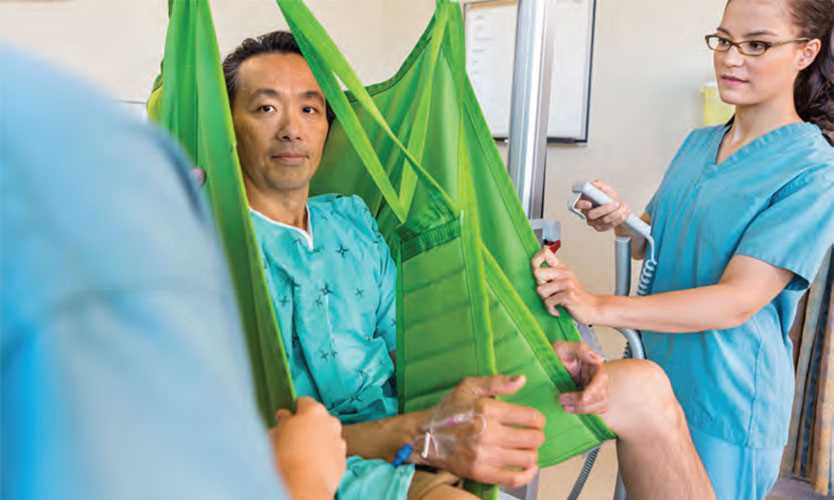Denial of comp benefits to injured nurse reversed
Reprints
A split Court of Appeals of Mississippi reversed an order from the state’s Workers Compensation Commission that denied benefits to an injured nurse and remanded the case for further proceedings.
Angela Jones alleged she was injured when her back “popped” while pushing a medicine cart during her nursing shift on March 21, 2015, at Baptist Hospital, an organization she worked for as a registered nurse for 14 years, according to court documents in Angela Jones v. Mississippi Baptist Health Systems Inc. and Mississippi Baptist Health Services. Her charge nurse testified that she did not hear the pop of the injury, but that Ms. Jones’ behavior changed and she was visibly in pain and limping afterward.
Ms. Jones sought treatment from four physicians and indicated on written documents that the visit was unrelated to a work injury or workers compensation case. Two months after the hospital approved her Family and Medical Leave Act leave, she emailed a hospital representative to indicate that the injury was related to pushing the medicine cart during her nursing shift, which led Baptist Hospital to initiate the process for investigating a worker compensation claim.
An evidentiary hearing was held before an administrative judge who found Ms. Jones credible and determined a preponderance of the evidence supported a finding that she sustained a compensable, work-related injury, according to court documents. Baptist Hospital appealed this decision with the Mississippi Workers’ Compensation Commission, which found that Ms. Jones did not present sufficient medical evidence to support her claim and reversed the administrative judge’s decision.
Ms. Jones then appealed the commission’s decision to the Court of Appeals, with the issue at appeal being whether the commission correctly applied the law when it disregarded Ms. Jones’ testimony in determining that she did not sustain a compensable and work-related injury during her nursing shift.
“Great deference is afforded to the findings of the commission and such findings will not be disturbed when they are supported by substantial evidence,” but when the commission’s application of the law is in error, “the court will not hesitate to reverse,” the appeals court noted based on previous precedents.
The commission ignored both Ms. Jones and her colleague’s testimony, citing a failure to present “sufficient medical evidence” — a stance rejected by a majority of the appeals court.
“The injury occurred while performing her assigned duties,” the majority opinion stated. The nurse’s injury was “an unexpected result of dispensing medications to her patients. This Court therefore found that the nurse met her burden of proving compensability by substantial evidence.”
The majority opinion also rejected the commission’s noting of Ms. Jones’ failure to report a specific injury to her healthcare providers as part of its decision to deny her workers comp benefits.
“This Court is not convinced that Jones understood the meaning of ‘injury’ in which the forms intended,” the majority opinion stated.
The commission based its decision in part on the opinions of several of her physicians relating Ms. Jones’ back and leg problems in part to her obesity, according to the ruling.
“Even if true, this does not entirely negate a causal connection between Jones’s symptoms and her alleged work injury,” the majority opinion stated. “A pre-existing disease or condition does not prevent an injury from ‘arising out of employment’ if the work-related injury aggravated, accelerated or combined with a disease to produce a disability for purpose of workers’ compensation.”
The majority ruled that the commission erred by disregarding Ms. Jones’ evidence and reversed and remanded the case for additional proceedings.
However, several judges determined there was “substantial evidence to support the Commission’s finding that Jones did not sustain a compensable work-related injury” and said the commission’s decision must be affirmed and dissented from the majority opinion.
The dissenting opinion cited Ms. Jones’ failure to report a work-related injury to her supervisor or the hospital’s human resources department for more than seven months after the alleged injury. In addition, she was treated by four different doctors during this period, but none of her patient information forms or the doctors’ notes identified a specific work-related injury as a possible cause of her pain nor did any of the doctors’ note that Ms. Jones mentioned a back “pop” to them, according to court documents.
“Jones’s failure to claim a work-related injury from March to October 2015 is certainly a reasonable basis for the Commission to question her claim that she sustained such an injury,” the dissenting opinion stated.
In addition, Ms. Jones advised her supervisor that her pain began four days before the alleged injury, providing the same information to one of the treating physicians and denying any precipitating event, the dissenting opinion noted. The commission was also entitled to credit a treating physician’s testimony, which he attributed to her degenerative disc disease, obesity and other factors and not a work-related injury.
“With all respect, the majority is able to reverse only by substituting its judgment for that of the Commission,” the dissenting opinion stated.
Attorneys for the employer and Ms. Jones could not be immediately reached for comment.
Read Next
-

Safe lifting cuts health care injuries
Nurses, aides, orderlies and therapists have some of the highest numbers of nonfatal occupational injuries, many of which are musculoskeletal injuries arising from unsafe patient handling, experts say.